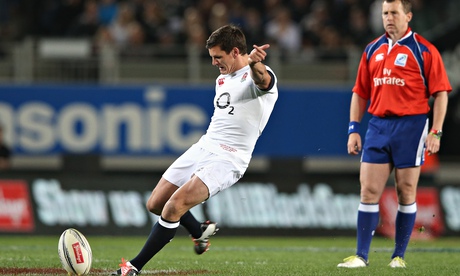
England are disappointed at losing to New Zealand on a ground where the All Blacks had not been beaten in the professional era, even though they fielded a side missing more than half its regulars. That says everything about the environment developed by Stuart Lancaster and why the World Cup holders have every reason to be nervous about next year’s hosts.
England will go into the World Cup without the hard-core experience of New Zealand, South Africa and Wales but what the first Test proved was that they pretty much have two teams of players who have proved themselves at the highest level. That gives them an advantage over the All Blacks and Wales who, for all their cap centurions and seasoned campaigners approaching the three-figure mark, have a shallower depth.
Lancaster may not be able to call on anyone next year remotely near 100 caps, but what he will have is 25-30 who will have a couple of dozen caps or more, all of whom are comfortable in the national set-up. It means that England are immune from the vicissitudes of club form. How someone is playing for Gloucester, for example, does not matter a jot; it is no longer the basis for judgment.
I mentioned Gloucester because of Freddie Burns, whose selection in the first Test was the subject of debate because he had had, by his own admission, a poor season at Kingsholm. Danny Cipriani was the club form player, but Burns had been part of the England set-up during Lancaster’s time in charge. The coaches trusted him and he trusted them. He looked comfortable and confident from the off on Saturday, a contrast to the often diffident player we saw in the Premiership.
Lancaster deserves a lot of credit for the environment he has created. England’s strength is not in individuals but the collective group, and by that I mean the full squad. It means that when there are absentees, the whole does not suffer. Some of the stand-out players at Eden Park are likely to find themselves on the bench or in the stand on Saturday to make way for those who did not play because they were involved in the Premiership final or were injured, but they will still contribute hugely.
Burns’s display, from the tee and as a fly-half, means that Owen Farrell is under pressure for the first time in a while. Likewise Courtney Lawes in the second row, where Geoff Parling was superb, Tom Wood and Billy Vunipola in the back row and Billy Twelvetrees in the midfield. I expect Lancaster to resort to the side he considered to be his first-choice in the Six Nations for the second Test, but what it means is that the starting lineup in the final match of the series will be based on the form shown in the previous two weekends.
It is a superb position for Lancaster to be in 15 months out from a World Cup. In contrast, France were missing a few men in Brisbane against Australia and were abject. Their threat is individual and they have not built up the same esprit de corps as England that allows players to flourish. France below strength were palpably weaker but England were as strong, taking the game to the All Blacks from the off and leading for long periods.
The one player England did miss was Danny Care. Ben Youngs kicked and distributed well, although his handling error 11 minutes from time proved costly, but he has lost the capacity to make defences nervous by darting through gaps and lifting the pace of the game. Care has qualities of his own and more was the pity that we did not get the opportunity to see him in partnership with Burns.
England have played New Zealand three times under Lancaster, winning once and losing twice late on. They are not in awe of the All Blacks who, for all their possession in the second half, rarely threatened the line until the end when they had a man advantage. England pressed them hard in defence and seldom have the likes of Ma’a Nonu, Israel Dagg and Ben Smith looked so ineffective, while the absence of Kieran Read in the back row was felt keenly.
Steve Hansen has more to be concerned about this week than Lancaster. His scrum creaked, the lineout misfired thanks to Parling, he has problems at hooker and the exodus of so many All Blacks abroad has left him with a less experienced second tier than England’s. He has to keep the likes of Dan Carter, Richie McCaw and even Keven Mealamu going.
The All Blacks will be better this Saturday, but then so will England. It is still too early to be talking about who will be in the best shape come the World Cup, but at this stage the side I would want avoid is South Africa, so strong, aggressive, physical and tactically astute, not New Zealand.

